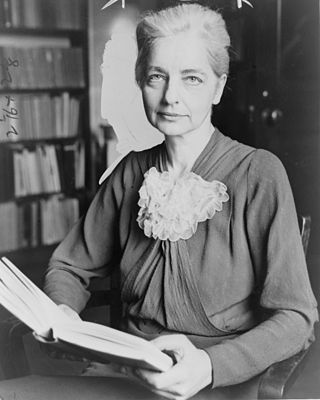Ruth Benedict
American anthropologist and folklorologist (1887-1948) From Wikipedia, the free encyclopedia
Remove ads
Ruth Fulton Benedict (June 5, 1887 – September 17, 1948) was an American anthropologist and folklorist. She studied under Franz Boas. She received her Ph.D. and joined the faculty of Columbia University in 1923. Benedict was president of the American Anthropological Association and also an important member of the American Folklore Society.[1] She became the first woman to be a leader of an academic profession.[1] Her 1934 book Patterns of Culture was about how personality, art, language, and culture all connect together. None of those things can be separate. She also wrote against racism during World War II and that all people should work together. Her later book, The Chrysanthemum and the Sword, was about the society and culture of Japan. She researched it during the war without visiting Japan. She used literature, books, news articles and movies from Japan. It was published in 1946 and was one reason why the United States allowed Japan to keep the Emperor after losing the war. It was an example of anthropology at a distance.
Benedict was married to Stanley Rossiter Benedict, but also had a close professional and personal or romantic[2][3][4][5] relationship with anthropologist Margaret Mead.
Remove ads
References
Wikiwand - on
Seamless Wikipedia browsing. On steroids.
Remove ads

